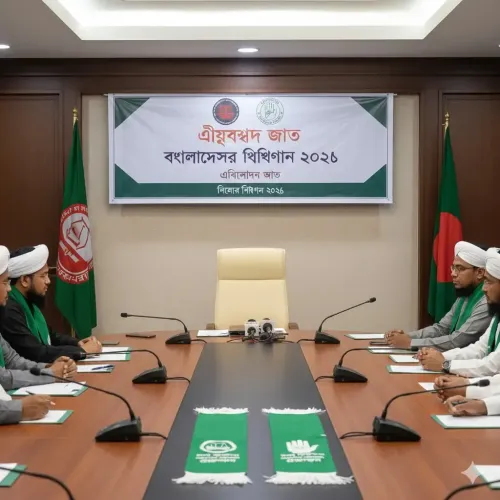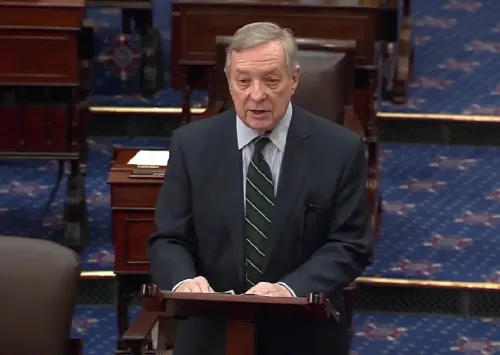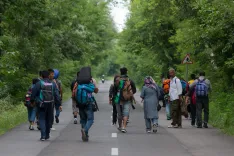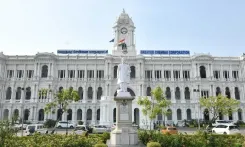Bangladesh: Massive Worker Protests Block Highway Over Factory Closures and Unpaid Dues
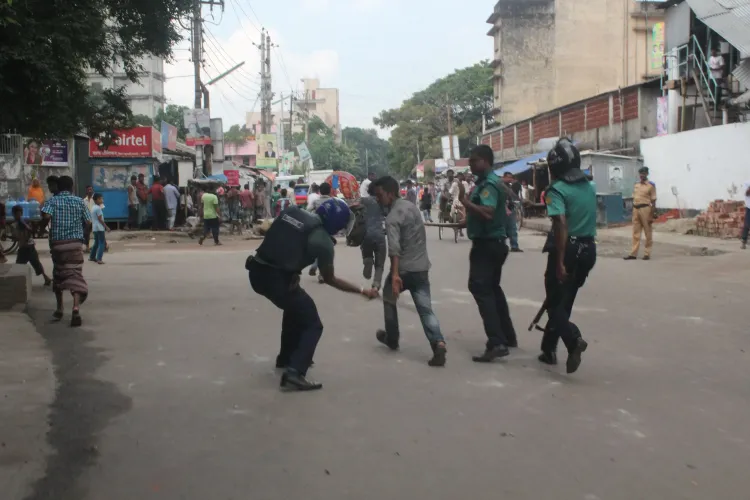
Synopsis
Key Takeaways
- Thousands of workers protested on Dhaka-Mymensingh highway.
- They demanded factory reopenings and overdue payments.
- Ongoing protests have caused severe traffic disruptions.
- Workers are struggling with unpaid wages and bonuses.
- Reports indicate a growing disparity in worker incomes.
Dhaka, March 22 (NationPress) Thousands of workers gathered to protest and obstruct the Dhaka-Mymensingh highway on Saturday, demanding factory reopening, annual leave, overdue holiday payments, and bonuses.
The road was blocked for two hours, disrupting traffic and causing significant inconvenience to local residents.
Workers from the Giant Knit garment factory in the Gazipur district of Dhaka division initiated the protest following a factory closure notice issued that morning.
According to Gazipur Industrial Police Sub-Inspector (SI) Faruk Hossain, workers had previously protested on Thursday regarding leave and bonus payments.
In response, the factory management released a closure notice, as reported by the prominent Bangladeshi daily, The Dhaka Tribune.
Despite numerous attempts to engage in discussions with the authorities about their leave and bonuses, the workers have yet to reach a resolution.
One protesting worker told The Daily Star, "We are struggling to survive with our families. Eid is approaching, yet we have no assurance of our holiday payments and bonuses. The factory must reopen, and our dues must be settled immediately."
Earlier this week, hundreds of workers also blocked both the Dhaka-Tangail and Dhaka-Mymensingh highways at the Bhogra Bypass intersection in Gazipur over unpaid salaries.
These protests resulted in significant traffic jams in an already congested area. The protesters claimed that over 300 workers have not received their wages, with the management delaying payments without justification.
Last week, workers from at least 15 garment factories in Gazipur's Kaliakoir protested by blocking the Dhaka-Tangail highway due to factory closures and an alleged assault on workers, according to local media.
As noted in a report by the International Labour Organization (ILO) released in November 2024, Bangladesh has the third highest percentage of low-paid workers among South Asian countries, following Sri Lanka and Bhutan.
Economists indicate that this growing disparity has compelled low-income and unskilled workers to cut back on food consumption due to diminishing real incomes.
A policy brief from Cornell University in 2025 suggests that Bangladesh should conduct annual reviews of its wage-setting processes, as apparel workers earning minimum wage are experiencing year-on-year income losses due to current inflation rates, as reported by The Financial Express.
Since the interim government led by Muhammad Yunus assumed power in August 2024, the country has been engulfed in protests and strikes driven by workers over unpaid dues and worsening working conditions.
Numerous reports have indicated that the ongoing protests have resulted in many factory closures, with some workers losing their lives or suffering serious injuries during protest marches.



